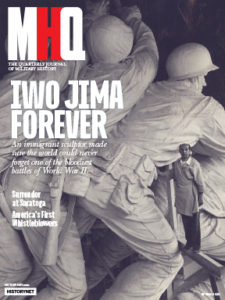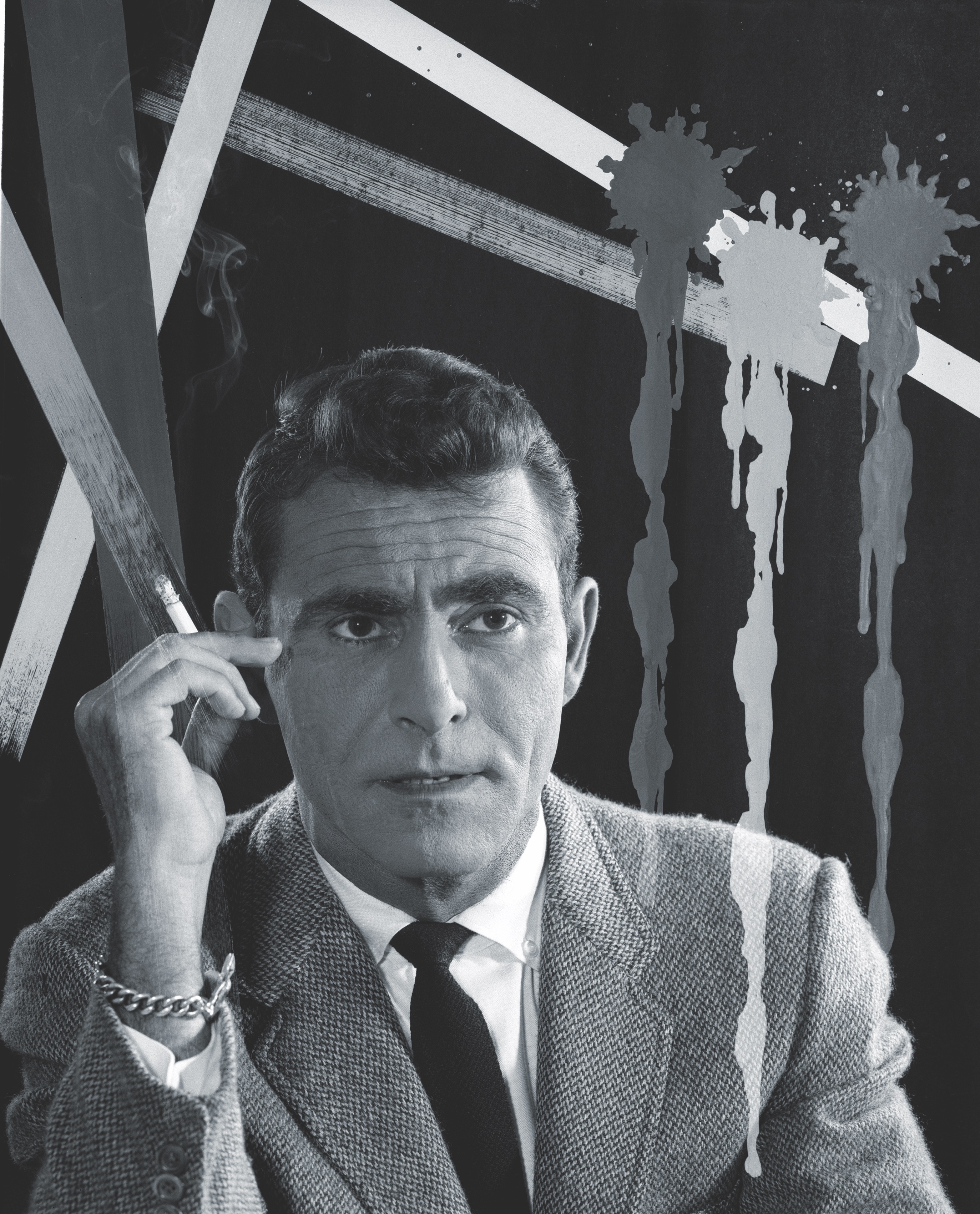Rod Serling was born in 1924 in Syracuse, New York, but he grew up in Binghamton, where his parents had moved when he was still an infant. From an early age he liked to perform for others and listen to science fiction, suspense, and horror shows on the radio. In time he took up public speaking and writing, becoming the editor of his high school newspaper. But in 1943, with the nation at war, Serling set his college plans aside and enlisted in the U.S. Army.
Serling trained at Camp Toccoa, Georgia, to be a paratrooper in the 511th Parachute Infantry Regiment of the 11th Airborne Division, which was sent to the Pacific Theater in May 1944. Serling first saw combat six months later, when his unit landed in the Philippines to fight as light infantry in the Battle of Leyte. He then was assigned to the 511th’s demolition platoon, nicknamed “the Death Squad” because of its high casualty rate.
Serling was wounded but rejoined his regiment in time for its February 3, 1945, landing on Tagatay Ridge for General Douglas MacArthur’s march on Manila. Some 17,000 Japanese soldiers were waiting for them. During the next month, as the Americans battled the Japanese block by block, Serling was wounded again. (He would be awarded a Purple Heart and a Bronze Star, among other decorations, for his wartime service.)
After his discharge from the army in 1946, Serling worked at a rehabilitation hospital as he recovered from his injuries. He then used the GI Bill and his disability benefits to enroll in Antioch College in Yellow Springs, Ohio, where he gravitated to theater, broadcasting, and writing. On graduation he decided to focus on writing for radio and television (he’d won an award for a television script he wrote in college), and in 1951, after a stint at a radio station in Cincinnati, he started writing TV dramas as a freelancer, often covering such serious issues as lynching, union organizing, and racism. Then, on October 11, 1956, his “Requiem for a Heavyweight” aired on the live television show Playhouse 90. Serling’s teleplay won a Peabody Award—the first for an individual script in television—and helped pave the way for his remarkable career as a screenwriter, playwright, television producer, and narrator.
On October 2, 1959, came The Twilight Zone, which would make Serling—its host, narrator, and most prolific writer—instantly recognizable to millions of Americans. The CBS series, which aired for five seasons, would bring Serling three Emmy Awards, though he was twice forced to resuscitate the series after announced cancellations. But in 1964, when CBS again canceled the show, Serling decided to let it go.
In 1967 Serling began teaching at Ithaca College, taking students under his wing as he continued to work on his own writing projects until his death from a heart attack in 1975. He was 50 years old.
Serling’s wartime experiences left him with nightmares and flashbacks that may have pushed him into his chosen profession. “I was bitter about everything and at loose ends when I got out of the service,” he once recalled. “I think I turned to writing to get it off my chest.”
NEW GUINEA NIGHTMARE
Down here there are no Ten Commandments
And a man can raise a thirst;
Here live the outcasts of Civilization,
Life’s Victims at their worst.
Down the steaming Guinea coast
Live the men that God forgot,
Battling the ever present fever,
The itch and the tropical rot.
Living with the natives,
Down in the sweltering zone,
Rooting like hogs in a wallow,
Ten thousand miles from home.
Nobody knows we’re living,
Nobody gives a damn;
Back home we’re soon forgotten—
We soldiers of Uncle Sam.
Drenched with sweat in the evenings
We stew in foxholes and dream,
Killing ourselves with alkie
To dam up memory’s stream.
At night we lie on our pillows
With ills no doctor can cure.
Hell no, we’re not convicts,
Just soldiers on a tour.
We have but one consolation,
And that to you I shall tell,
When we die we’ll all go to heaven,
Because we’ve done our hitch in hell.
[hr]
This article appears in the Spring 2020 issue (Vol. 32, No. 3) of MHQ—The Quarterly Journal of Military History with the headline: Poetry | The War Zone

Want to have the lavishly illustrated, premium-quality print edition of MHQ delivered directly to you four times a year? Subscribe now at special savings!

